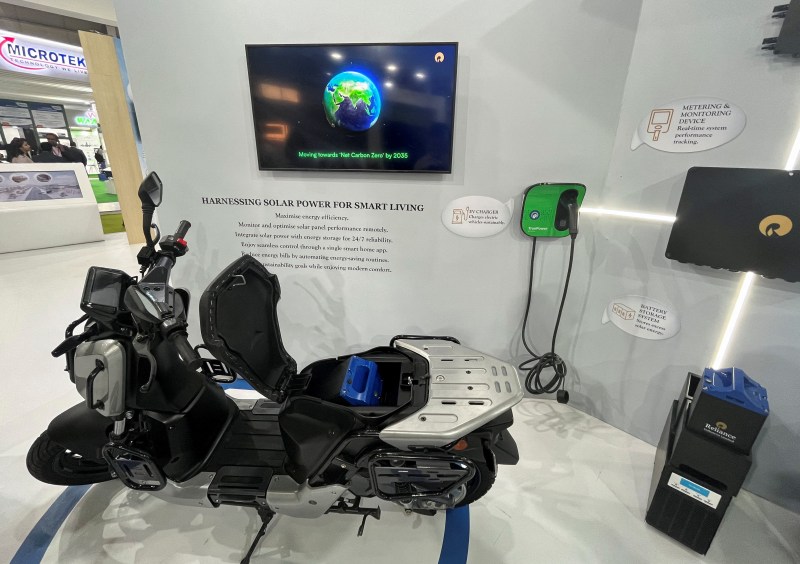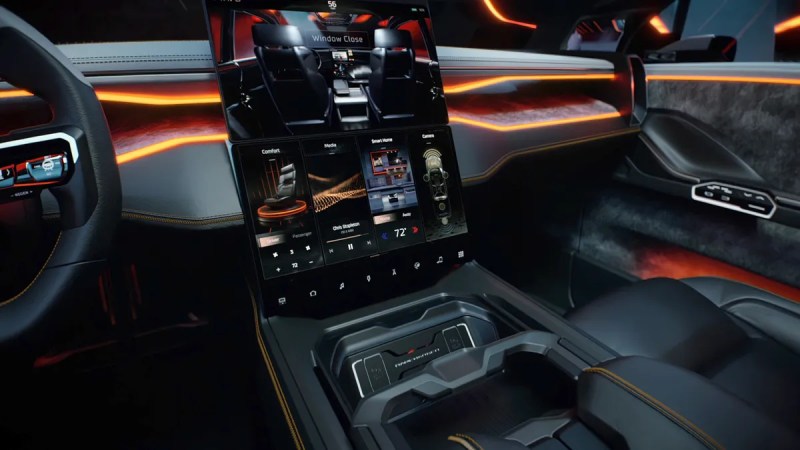Electric Vehicle Charging Infrastructure – Becoming a certified installer of electric vehicle charging stations offers an exciting opportunity to grow your business. Licensed electricians are uniquely positioned to benefit from the boom in demand for electric chargers. S&P Global estimates that electric charging infrastructure will need to quadruple by 2025 to meet America’s appetite for electric vehicles.
The growing need for new EV charging infrastructure has put electricians in the spotlight, opening doors to new markets and billions of dollars in public and private installation business. Electricians preparing to meet demand will reap the benefits as businesses and homeowners try to add EV chargers to parking lots and garages across America.
Electric Vehicle Charging Infrastructure
Learn about new opportunities in electric charging station installation, the skills you need to expand your customer base, and the rules shaping this growing market.
Ac Vs Dc Electric Vehicle Charging Infrastructure
Electric cars are on the rise. Sales of electric vehicles, or electric vehicles, in the United States will increase by 55% during 2022, reaching an 8% share of overall sales. This explosive growth is expected to continue through 2023, with the International Energy Agency expecting a 35 percent increase in new purchases over last year.
To help America move toward electric vehicles, the Biden-Harris administration announced $7.5 billion in public funding for electric vehicle charging in an effort to build a national network of 500,000 electric vehicle charging stations. The funding is just one part of the bipartisan Infrastructure Act’s recent provisions for new electric vehicle supply equipment (EVSE), including the National Electric Vehicle Infrastructure Formula (NEVI) program.
The demand for new EV charging equipment is not limited to commercial EV chargers. As more Americans shop for an electric future, private companies are working to fill the need for home electric charging stations — including Level 1 charging points and Level 2 charging equipment.
From private garage stations to fast chargers to public parking lots, electricians are the ones who install the equipment that makes the coastal electric charging network a reality. And they will make a lot of money from it.
A Closer Look At Dc Fast Charging Stations For Business
The United States is facing a shortage of licensed electricity. By the end of the decade, the US Bureau of Labor Statistics expects to create approximately 73,500 new jobs each year. A major factor in this shortage is the need for skilled electricians to manage the future boom in NEVI-funded commercial electric chargers.
Each of the expected 500,000 EV charging stations, consisting of at least four DC fast chargers, will require a complete switchboard and field wiring. Building the skills necessary to run safe and efficient commercial installations gives licensed electricians access to an emerging market with billions of dollars in federal incentives.
The Edison Electric Institute predicts the need for 12.9 million EV charging ports in the United States by 2030. Additionally, 74% of these ports are expected to be installed in single or multi-family homes. The International Code Council is so convinced of the future of electric vehicles that it has changed its building code to require electrical-ready wiring in all new construction. Licensed electricians working in new construction will be well compensated for serving as EV charging station contractors.

Additionally, residential electrical contractors are well-positioned to help homeowners expand their home services to accommodate a new 120-volt or 240-volt home charging station. Expanding 240-volt service to older homes will be big business for electricians as they struggle to meet the need for Level 2 home charging stations across America.
China’s Ev Charging Infrastructure Sees Robust Growth In Q1
With billions of dollars in demand for electric charging stations over the next decade, now is the time to develop your skills and grow your business. But where do you start?
The first step to becoming an electrical charger installation electrician is to keep up to date with code changes and your understanding of EVSE. Electric vehicles and EV charging stations are still relatively new, so both the technology and supporting codes will change frequently over the next few years.
Pay special attention to changes to the National Electrical Code (NEC). Article 625 of the NEC specifies code requirements for electric vehicle charging systems. Because EV charging is considered a continuous load under the NEC, some additional protections are built into the EV charger installation standards.
A careful study of NEC Article 625 will prepare you to comply when installing EV charging stations. Check GFCI protection requirements, minimum charger outlet height, cable length requirements, ventilation requirements and more.
How To Open An Electric Vehicle Charging Station In Indonesia
Rules change often. But technology moves much faster. Currently, there are three classes of EV charging equipment, depending on the average charging speed.
All three levels of EV charging stations have their own advantages, limitations, disadvantages, costs, and use cases. As electric vehicle technology advances, these designations may change. New equipment may be standardized. Older models may fail. Many regulatory bodies and industry groups are interested in shaping the future of EVSE, apart from the automakers themselves.
For a licensed electrician who wants to make money installing electric charging stations, it’s important to stay up to date with new developments. Stay ahead of the market to take advantage of new opportunities and increase your income even more.

Installing an electric vehicle charging station currently does not require additional permits or certificates. The EV industry is still young and has yet to develop a strong set of standards. If you are a licensed electrician, you already have the basic skills and all necessary permits to install EVSE.
Electric Vehicle Onboard Equipment And Charging Infrastructure Standards
However, several certification programs can help you increase your visibility and marketability as a certified electric charging station installer.
Tesla will advertise you directly on its website, for example, if you become a Tesla Certified Installer. If you prefer to work with a single charging network, you can take a course to install a ChargePoint. Programs like this give you more advertising and referral opportunities through a specific business.
Until recently, there was no national standard for EV charging station certification. However, as part of bipartisan infrastructure legislation, there is now a clear winner. The International Brotherhood of Electrical Workers (IBEW), along with other electrical industry stakeholders and groups, helped establish a training certification program called the Electric Vehicle Infrastructure Training Program (EVITP) as a corporate professional standard.
As a condition of public funding under the bipartisan Infrastructure Act, EVITP certification is required for electricians installing EV charging stations as part of the NEVI network. If you want to participate in the Biden-Harris administration’s aggressive EV charging station rollout, you can meet the requirements of 23 CFR 680.106(j) by obtaining EVITP certification.
The Benefits Of Energy Storage For Ev Charging
You can also complete a registered electrician apprenticeship program that includes charger-specific training approved by the Department of Labor.
Even for chargers not built with public money, becoming an EVITP certified EV charging station installer gives you a huge competitive advantage over unlicensed electricians. If you want to maximize your earning potential with an electric charger installation, certification is one of the best investments you can make.
In addition to federal regulations and national building codes, each jurisdiction has its own requirements for electrical charger installation designed to minimize fire hazards and future-proof communities. For example, if you want to install an EV charger in Ventura, California, you must meet state licensing requirements and local charging station codes, in addition to other applicable standards.

If you’re planning to install EV charging stations in your area, be sure to read up on the permits and regulations you’ll need to comply with. The last thing you want is to finish the installation successfully only to find out that it failed the inspection.
S. Korea To Add 3,000 Electric Car Charging Stations This Year
Billions of dollars are to be made over the next decade for electricians who can install EV chargers. As the industry changes, investing in certification programs and complying with rapidly evolving regulations will increase your value and open the door to a growing revenue stream.
Whether you’re looking to add EV charger installation to your skill set or become a specialist EV charger contractor, opportunity is knocking. Embrace this evolving market to take advantage of the major shift in consumer, business and government power needs. Start making money by installing electric car charging stations.
White House. (2023, February 15). Fact Sheet: The Biden-Harris administration announced new standards and major improvements for a nationwide network of US-made electric vehicle chargers. Retrieved from https://www.whitehouse.gov/briefing-room/statements-releases/2023/02/15/fact-sheet-biden-harris-administration-announces-new-standards-and-major-progress-for- American-made-electric-car-charger-national-grid/
US Department of Transportation Federal Highway Administration. (June 21, 2023). National Electric Vehicle Infrastructure Program (NEVI). Retrieved from https://www.fhwa.dot.gov/environment/nevi/
Electric Vehicle Charging Station (evcs)
Edison Electric Institute (2022, June). Electric vehicle sales and charging infrastructure needed by 2030. Retrieved from https://www.eei.org/-/media/Project/EEI/Documents/Issues-and-Policy/Electric-Transportation/EV-Forecast–Infrastructure – .pdf report
International Code Council (2021, October). 2021 Electric Vehicles and Building Codes: A Strategy to Reduce Greenhouse Gases – Building Code Amendments to Charge Electric Vehicles. Retrieved from https://codes.iccsafe.org/content/ICCEVBCSGGR2021P1/building-code-amendments-for-electric-vehicle-charging
US Department of Energy’s Alternative Fuels Data Center. (n.d.). Infrastructure Development for Electric Vehicle Charging Retrieved from https://afdc.energy.gov/fuels/electricity_infrastructure.html

International Brotherhood of Electrical Workers. (August 26, 2022). IBEW supported selected EV training for the National Charging Network. Retrieved from https://www.ibew.org/media-center/Articles/22Daily/2208/220826_IBEW-Backed
Ev Turning Point: Momentum Builds For U.s. Electric Vehicle Transition
Code of Federal Regulations. (2023, June 5). 23 CFR 680.106 – Installation, operation, and maintenance by qualified technicians of electric vehicle charging infrastructure. Retrieved from https://www.ecfr.gov/current/title-23/chapter-I/subchapter-G/part-680/section-680.106
California Governor’s Office of Business and Economic Development. (n.d.).
Electric vehicle infrastructure stocks, electric car charging infrastructure, electric vehicle fleet charging infrastructure, plug in hybrid electric vehicle charging infrastructure review, electric vehicle charging infrastructure companies, electric vehicle infrastructure, electric vehicles charging infrastructure, electric charging infrastructure companies, electric vehicle charging installation, electric vehicle infrastructure etf, electric truck charging infrastructure, electric bus charging infrastructure
- DIY Car Scratch Repair Tips: Expert Advice for Flawless Results - December 23, 2024
- Winter car maintenance checklist: Essential tips for winterizing your vehicle - December 22, 2024
- How to check car fluid levels - December 21, 2024








